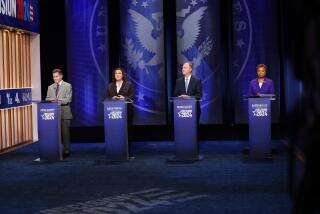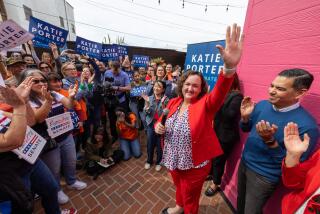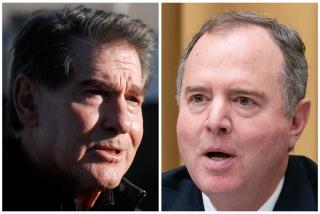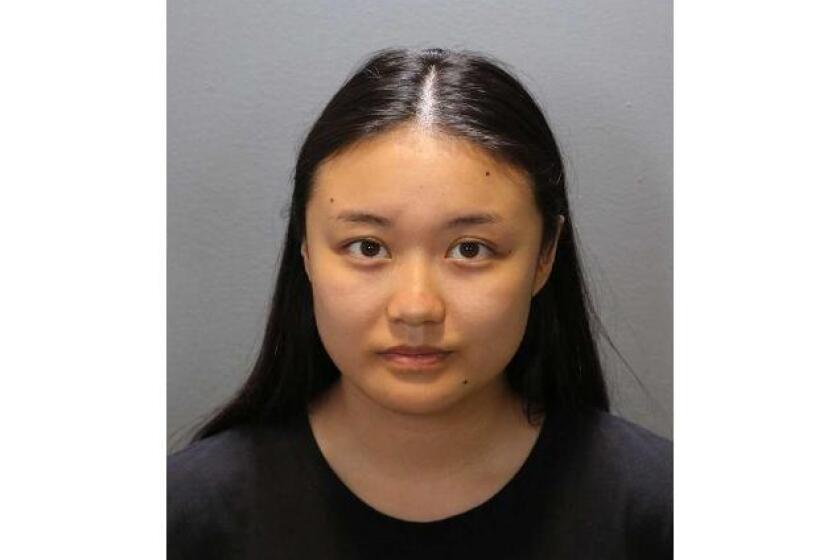Analysis: Top U.S. Senate candidates run quietly, for now
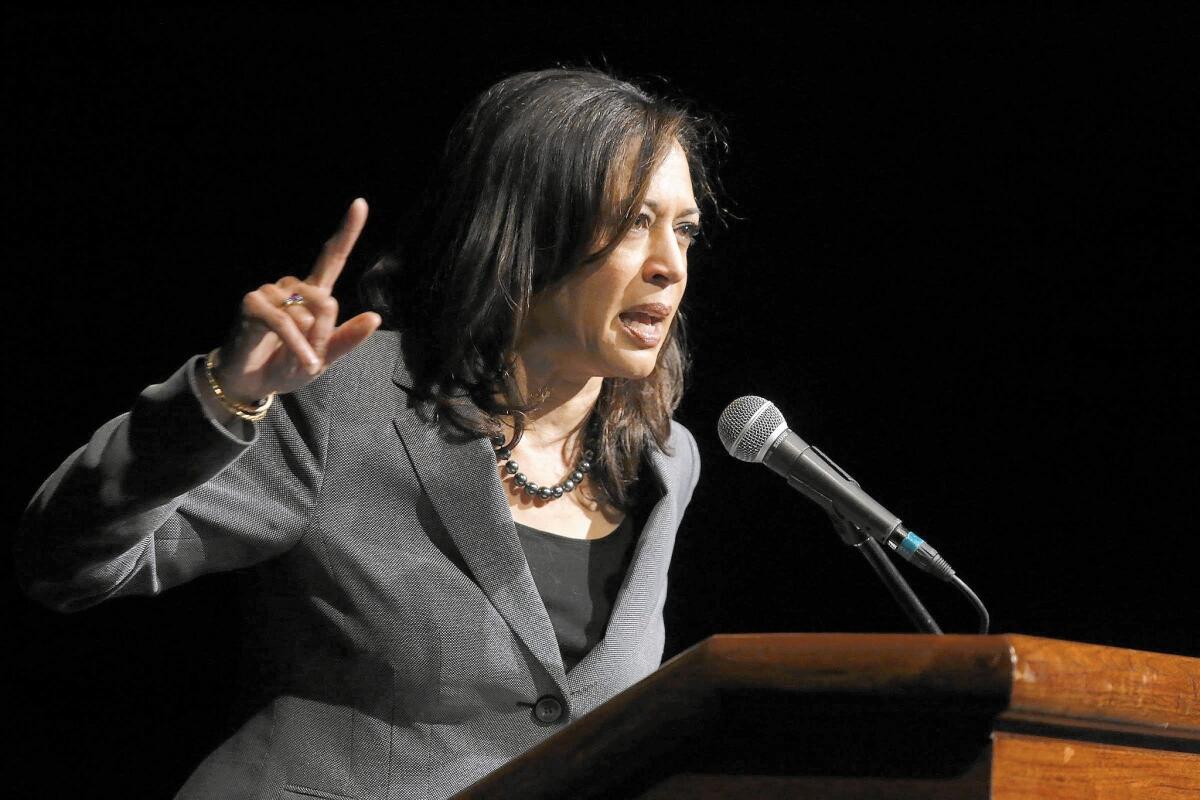
Watching the U.S. Senate race in California makes you yearn for one of those childhood gizmos that magically makes invisible ink visible. Without one, the race has been hard to see.
Kamala Harris has been going about her business as attorney general, doing work that occasionally serves a campaign purpose and floating above any fray that might otherwise develop.
Her sole serious opponent in the Democratic Party, U.S. Rep. Loretta Sanchez of Santa Ana, has been working in Washington and raising money all over, trying to make up for a later — and stumbling — start. Most of what she and Harris have done is, of necessity, behind closed doors.
This is the money and endorsement season, meaning that public appearances aren’t the highest priority for candidates. Right now, the priorities include raising enough money to make a good impression when the first financial reports, for the period ending June 30, are released.
Endorsements also are coveted because they carry with them the potential of money and manpower, and the allure of forward progress.
Harris scored an important one last week when she secured the backing of the California branch of the Service Employees International Union. It was both concrete, in that the union will now communicate its wishes to rank-and-file members, and symbolic, in that it denied something to Sanchez that could have provided a boomlet of publicity for her campaign.
The run-up to Harris’ endorsement, though, says something about why she remains the front-runner, absent some shocking development.
Both women are incumbents with political day jobs. But in service of hers, Sanchez spends much of her time in Washington, captive to the congressional schedule. Later, it may be an advantage that she has years of experience working on issues that Harris has not had to contemplate as attorney general (but is certainly studying now).
For now, though, the congressional job is a major time complication — and a complication that often has her far from California.
Harris, by comparison, has the state to herself much of the time. And although she has not worked for as long as Sanchez on national issues, her job has paid some definite benefits.
In late spring, for example, her office announced that it would hold a number of statewide meetings to discuss President Obama’s executive actions on immigration reform. The meetings, to be held in eight California counties, are being co-sponsored by Univision, the media giant, and SEIU.
Earlier in the spring, she dealt with SEIU during a protracted negotiation over the proposed sale of a chain of six hospitals. Faced with pressure from some unions to approve the sale to save jobs, and from others, including the healthcare workers arm of SEIU, to force protections for community members, Harris threaded a compromise that would have extracted concessions from the buyer.
In other words, Harris through her role as attorney general had opportunity to build a relationship with SEIU, which resulted in the group’s endorsement.
Harris has worked from the beginning of her campaign — she jumped in swiftly after Barbara Boxer announced she would not seek a new term in 2016 — to seek real and symbolic establishment credibility. In March, two months after she entered the race and while Sanchez was still pondering whether to run, she grabbed the endorsement of Emily’s List, the national donation machine that benefits female candidates.
She scrambled to sign up Latino and African American endorsers early on when former Los Angeles Mayor Antonio Villaraigosa was deciding whether to run. (Ultimately, he decided against the race.)
“She’s certainly building the framework for what ultimately will be the campaign: building the campaign team, meeting with policy advisors and different constituencies and earning endorsements,” said Harris campaign spokesman Brian Brokaw.
Her day job “is a job she takes seriously and very much enjoys,” he added. “Undoubtedly she spends many nights in living rooms up and down the state [raising money]. That’s the reality of running in a state as large as ours.”
Sanchez is doing much the same thing, bringing on campaign staff, including a finance director. Sanchez is trying to tap a fundraising operation that has had some national heft given her surprise win in 1996 over a longtime Democratic nemesis, Republican Rep. Bob Dornan, and her successive congressional victories.
“We’ve had to dig in and start getting the fundraising going, which has been a lot of calling past donors and people who have contributed to her congressional races,” said Sanchez strategist Bill Carrick.
“There’s been a congressional schedule that has been pretty hectic; she’s spent a good deal of time back there and going back and forth.”
In fact, she scheduled two congressional events in Southern California this weekend: one a groundbreaking at an Orange County water district facility and another a speech at a commemoration of the 65th anniversary of the Korean War. (Harris scheduled a rare campaign event on Sunday, when she is to appear at a gay pride parade in San Francisco.)
Both sides anticipate that the race will ultimately grow more visible as summer turns to fall — although that remains more in underdog Sanchez’s interest than in Harris’. For now there is a lot of money to harvest, and a lot of time to spend dialing for dollars or behind closed doors.
cathleen.decker@latimes.com
Twitter: @cathleendecker
For more on politics, go to https://www.latimes.com/decker.
More to Read
Start your day right
Sign up for Essential California for news, features and recommendations from the L.A. Times and beyond in your inbox six days a week.
You may occasionally receive promotional content from the Los Angeles Times.
